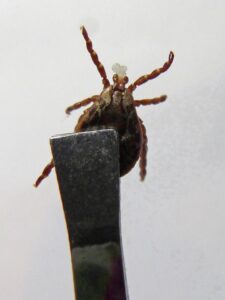You might be surprised to know that it isn’t only humans that can suffer from allergies. Your beloved pet could be a victim of allergies too, and in many cases, what starts as seasonal allergies can sometimes turn into year-round suffering. Alternatively, your pet may be affected by allergies for his entire life. Just as we can find suffering from allergies to have a negative impact on the enjoyment we get out of life, so too can our pets. So let’s find out more about what type of allergies your pet could have, what symptoms he will show you, and most importantly, what you can do to help.
Types of allergies
Typically, pet allergies fall into the following classifications:
Environmental allergies
Environmental allergies (known as atopy), is the most common form of allergy in most cats and dogs, and is often seasonal. For example, if your pet is allergic to house mites then his symptoms may peak during the winter, whereas if your pet has an allergy to tree pollen then he is most likely to exhibit his worst symptoms during the spring.
Tell-tale signs to watch out for include:
Feet: his feet may appear to be swollen or red, or he may chew or persistently lick the pads of his feet.
Skin: visible skin may be very red, scabbed or showing signs of infection. Your pet may also exhibit extreme scratching and licking.
Hair: hair may appear discolored or thinning in places thanks to excessive licking or rubbing his coat against carpets or furniture.
Ears: red, swollen, waxy, discharging ears or ears that are emitting a foul smelling odor are common traits for atopy, as are regular ear infections. Your pet may also scratch and rub at his ears persistently.
Face: hair loss on the face and reddened eyes are symptoms that your pet has been rubbing his face against furniture or carpets for relief.
Breathing: wheezing and respiratory difficulties are more common in felines, but are still signs of atopy.
Food allergies
Around 10-15% of all allergies seen in cats and dogs are related to the food that they eat, and in many cases, food allergies run alongside others such as atopy. Some of the symptoms that you should be aware of include:
- Recurrent ear problems, particularly yeast-related ear health problems
- Skin infections that diminish with antibiotic treatment, but recur as soon as the medication is stopped
- Persistent itching, particularly of the feet, face, anus, trunk and limbs.
- Although uncommon, dogs with food allergies may have loose and/or increased bowel movements.
Bite allergies
Sometimes known as flea allergies, bite allergies are usually a response to a bite by a flea, tick or similar creature. The area in question often becomes extremely itchy, and your pet will try and scratch and lick at it in order to alleviate the itch. Persistent licking and scratching can lead to the skin becoming swollen and infected, and hair discoloration and loss.
Contact allergies
Contact allergies – otherwise referred to as contact dermatitis – is a skin allergy bought about by coming into contact with a material or substance that causes your pet’s immune system to go into overdrive. The primary symptoms to be aware of include intense scratching, red itchy bumps, scabs or blistering on areas that the allergen has been exposed to, such as the pads of the feet.
Severe allergic reactions
Severe allergic reactions are thankfully not common, but you should still familiarise yourself with the symptoms so that you know what to look out for. These could include:
- Hives (urticaria)
- Facial swelling (angioedema)
- Anaphylactic shock
What can I do to help my pet?
If your pet is suffering with allergies, then there are a number of things that you can do to help alleviate their condition. However, these will vary depending on what type of allergy your pet has.
For skin irritations caused by bites, contact or environmental factors you should:
- Bath your pet as regularly as possible to keep the skin clean and wash away any allergens that may be clinging to his hair.
- Keep your home as allergen free as possible by vacuuming and cleaning floors and changing your pet’s bedding regularly, and ensuring that you use non-toxic cleaning agents rather than harsh chemicals which could irritate your pet further.
You could also consider moving your pet to a low-grain low-carb diet which will help protect the creation or worsening of inflammation. Omega-3 fatty acids are a great supplement you can add to your pet’s diet as they help to decrease inflammation throughout the entire body. You can also find Omega-3s in fish oils such as tuna and salmon.
Further support
If you believe that your pet is suffering from allergies, make an appointment with your Country Veterinary Clinic in Yuba City today, we will be happy to give you further support and guidance.



